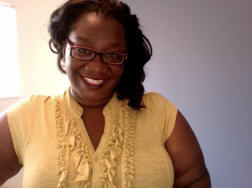


By 2010, that share had grown to a whopping 11.5 percent. In the fall of 2000, this sector enrolled 4.5 percent of all postsecondary students. In the last 15 years, the for-profits have ballooned. When we ask for justice and get ‘opportunity,’ it is Lower Ed.” Lower Ed is the story of those who walk through the doors of the for-profits in search of a better life. “When we ask for social insurance and get workforce training, it is Lower Ed. “When we offer more credentials in lieu of a stronger social contract, it is Lower Ed,” Cottom writes.

But she reserves her greatest scorn for the labor-market conditions that have fueled them and for the absence of a government jobs policy. She writes with disdain about the for-profits: the institutions, the people who run them, the Wall Streeters who bankroll them.

The phenomenal growth of one of these types-the for-profit private sector-is the focus of Tressie McMillan Cottom’s passionately written and disquieting book.Ĭottom comes to the subject with firsthand experience, having worked as a recruiter (enrollment officer) for two for-profit institutions, one specializing in cosmetology and the other in technology. All have become more popular as the monetary returns to college and university degrees and to certificates have increased. Higher education comes in many flavors-public colleges and universities, nonprofit private, and for-profit private. Now with a new foreword by Stephanie Kelton, economic advisor to Bernie Sanders's presidential campaign, this smart and essential book cuts to the very core of our nation's broken social contracts and the challenges we face in our divided, unequal society.Lower Ed: The Troubling Rise of For-Profit Colleges in the New Economy With sharp insight and deliberate acumen, Tressie McMillan Cottom-a sociologist who was once a recruiter at two for-profit colleges-expertly parses the fraught dynamics of this big-money industry.ĭrawing on more than one hundred interviews with students, employees, executives, and activists, Lower Ed details the benefits, pitfalls, and real costs of the expansion of for-profit colleges. "The best book yet on the complex lives and choices of for-profit students."Īs featured on The Daily Show, NPR's Marketplace, and Fresh Air, the "powerful, chilling tale" (Carol Anderson, author of White Rage) of higher education becoming an engine of social inequality Lower Ed is quickly becoming the definitive book on the fastest-growing sector of higher education at the turn of the twenty-first century: for-profit colleges.


 0 kommentar(er)
0 kommentar(er)
